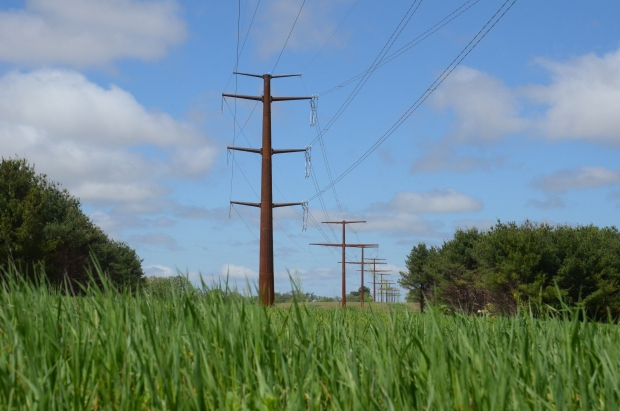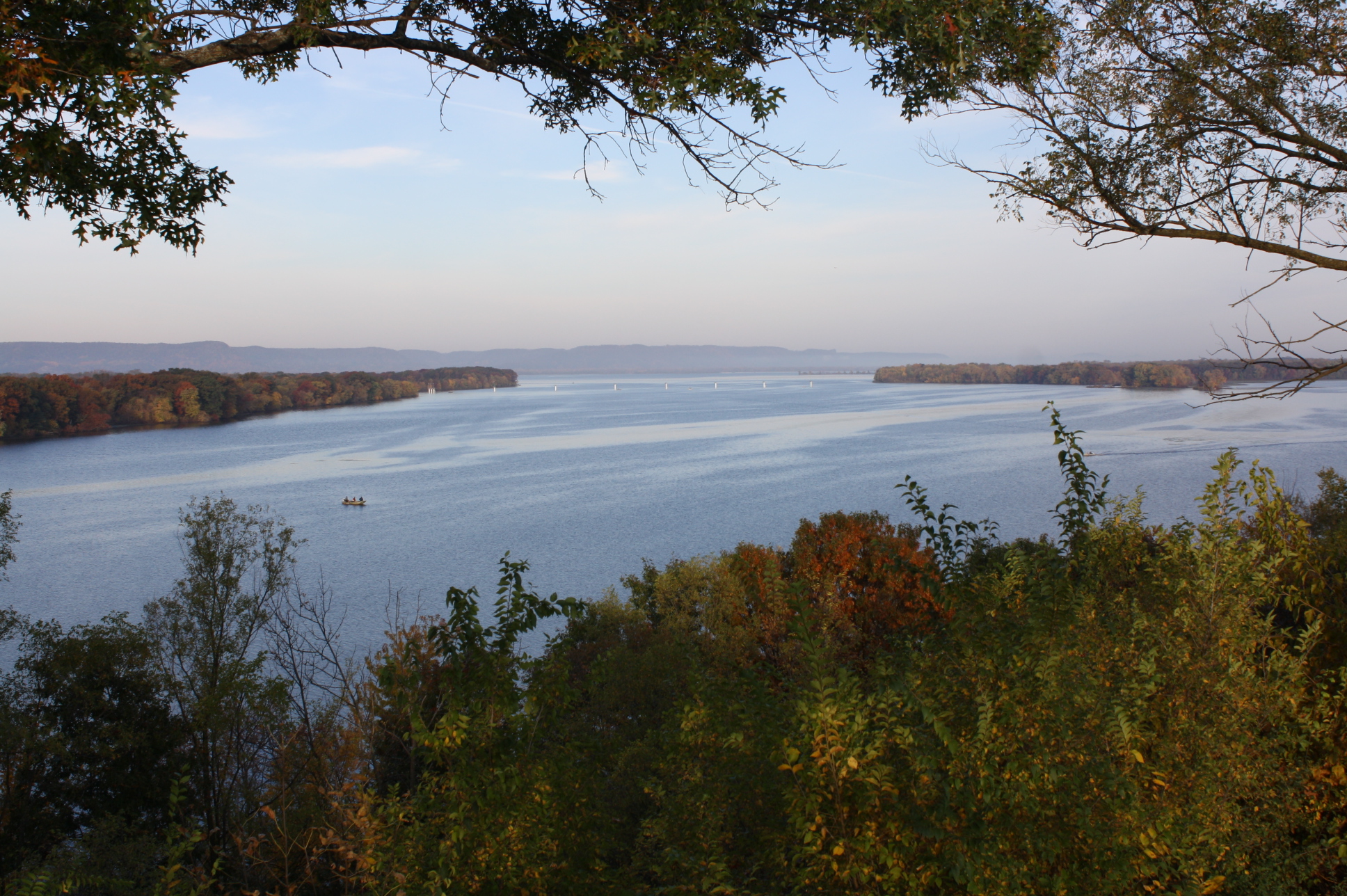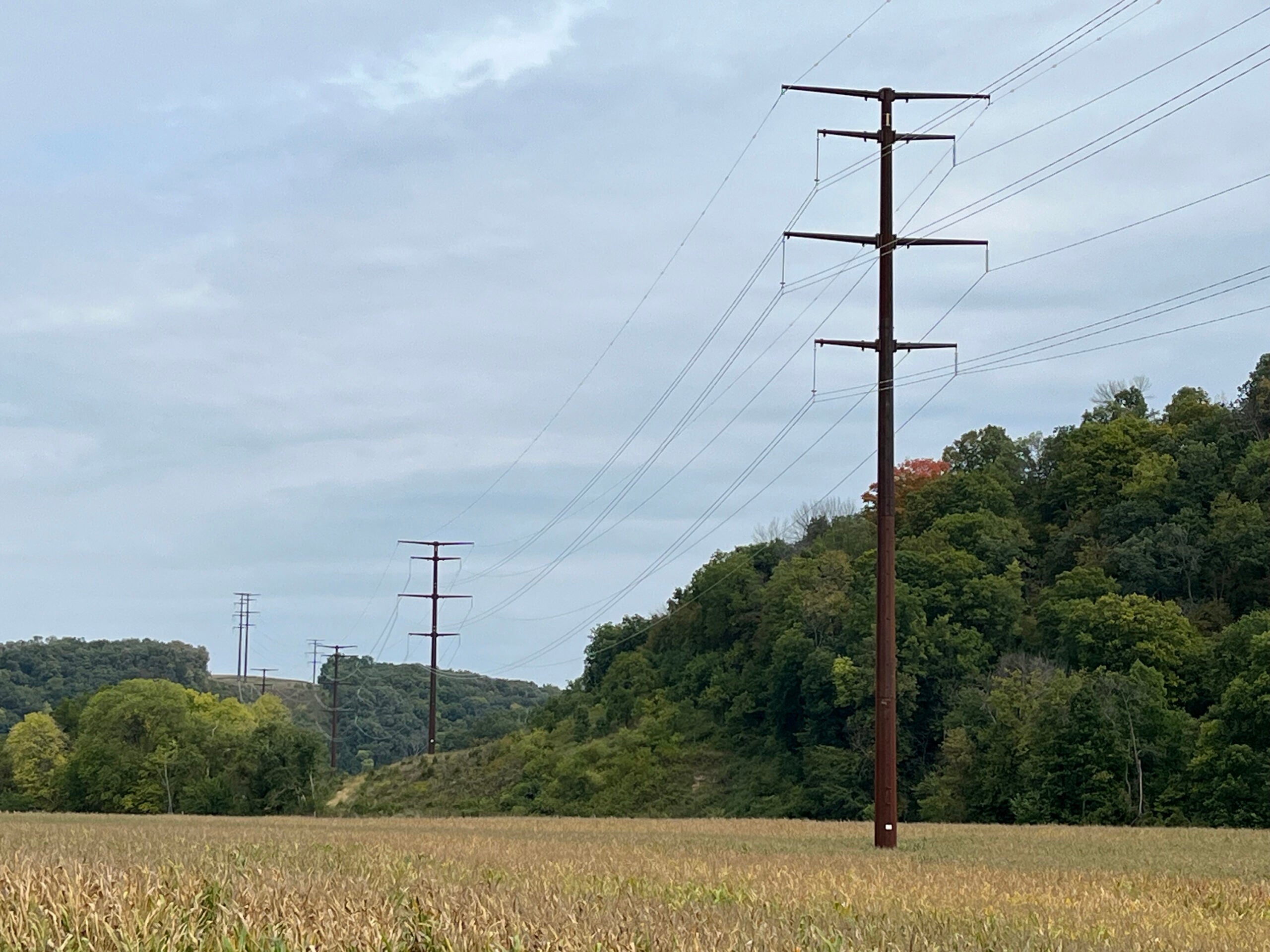Conservation groups have once again filed a lawsuit to block a transmission line that would cross through the Upper Mississippi River National Wildlife Refuge.
The legal challenge seeks to stop plans to route the controversial — and now nearly complete — Cardinal-Hickory Creek transmission line across the refuge near Cassville in Grant County.
The National Wildlife Refuge Association, Driftless Area Land Conservancy and Wisconsin Wildlife Federation are suing the Rural Utilities Service, U.S. Fish and Wildlife Service and Army Corps of Engineers along with agency officials. The lawsuit was filed in the U.S. District Court for the Western District of Wisconsin.
Stay informed on the latest news
Sign up for WPR’s email newsletter.
American Transmission Co., ITC Midwest and Dairyland Power Cooperative are almost finished with construction of the nearly $650-million line that runs more than 100 miles from Dane County to Dubuque County in Iowa. According to the utilities, only a roughly 2-mile stretch spanning the river from Cassville to Clayton County, Iowa has yet to be built.
Federal agencies issued final approvals for the project in late February that include a proposed land swap. Conservation groups argue the agencies violated federal laws by approving a proposal for utilities to exchange more than 35 acres of land in Grant County for almost 20 acres of the refuge in Clayton County, Iowa.
“We’re saying you really shouldn’t cross the refuge,” Jennifer Filipiak, the conservancy’s executive director, said. “You should look at alternatives that don’t require crossing a federally protected major flyway for thousands and thousands of birds every year and for tourism and all that stuff. The refuge — that land is protected for a reason.”

Groups previously sued to block the line’s crossing through the refuge
Conservation groups previously sued to prevent the line’s river crossing, and a federal judge blocked the project’s path through the refuge in 2022. Utilities appealed that ruling. Last summer, the 7th Circuit Court of Appeals overturned the lower court’s decision, saying it was too soon to challenge approvals that were not yet final.
Now, they’re once again arguing that the agencies violated the National Environmental Protection Act, National Wildlife Refuge System Improvement Act of 1997 and the Administrative Procedure Act. They want a court to again find the line isn’t compatible with the purpose of the refuge. They argue federal environmental reviews were too narrow in scope and didn’t fully consider alternatives to crossing the refuge.
The groups are also asking the court to prevent the U.S. Fish and Wildlife Service from closing on the land transfer. That could have happened as early as Monday, according to court filings.
Groups filed for a temporary restraining order to halt work for the next two weeks as utilities are staging construction equipment near the line’s crossing. A federal judge denied that request on Wednesday. However, federal agencies have agreed to delay the land exchange until March 22, said Howard Learner, executive director of the Environmental Law and Policy Center. Learner is an attorney representing groups in the case.
“What they are doing instead is attempting to circumvent the law by snipping out a piece of the refuge, pretending that it wasn’t created and protected by Congress in 1924. (They’re) exchanging that land for what they call the Wagner parcel, which is not as valuable, and then allowing the transmission line to run through what’s no longer the refuge because they traded away the land,” Learner said.

Photo courtesy of American Transmission Company
Utilities say land swap will benefit the wildlife refuge
In a statement Thursday, two of the utilities building the line say they’re dismayed by the latest lawsuit to halt the project.
“(E)specially given that a recently approved land exchange will expand and provide significant net benefits” to the refuge, the utilities wrote.
Dairyland Power and ITC Midwest proposed the land swap to provide a path for the line to be built along a 1.1-mile segment through the refuge. They pointed to an analysis of the land exchange by the U.S. Fish and Wildlife Service that found it will benefit the refuge.
“(T)he proposed land exchange fulfills the Refuge’s purposes by exchanging lower quality habitat for higher quality habitat, increasing the total protected acreage in the Refuge, reducing habitat fragmentation in the long term, and allowing the Refuge to acquire a high-priority tract that would not otherwise be available,” the analysis states. “Each of these factors will further the purposes of conserving and maintaining refuge and breeding places for birds, animals, fish, and plants.”
Half of the project already came online in December. The transmission line is now $156.8 million over budget. Utilities initially anticipated it would cost $492 million to build the project. In a filing with the Public Service Commission, they say higher expenses are largely due to inflationary cost increases and ongoing legal expenses tied to multiple legal challenges filed against the transmission line.
Utilities say the project is vital to the region’s clean energy transition. They say litigation could further delay tying 161 renewable energy projects into the regional grid that would produce 24.7 gigawatts of power.
All three federal agencies declined to comment on the pending litigation. A hearing in the case has been set for March 22.
Wisconsin Public Radio, © Copyright 2025, Board of Regents of the University of Wisconsin System and Wisconsin Educational Communications Board.

